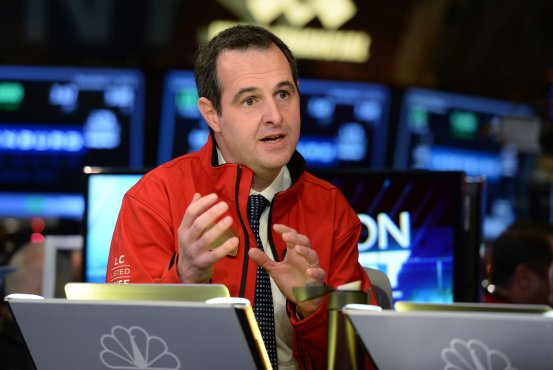
Has Fintech Boom Peaked?
By TELIS DEMOS and PETER RUDEGEAIR for WSJ.com
The “fintech” revolution is running into some resistance. New venture funding for upstart financial technology companies slowed sharply in the fourth quarter, according to Dow Jones VentureSource.
Though still high by historical standards, the dollars invested in U.S. startups fell by 20% from the third quarter to the fourth, the sharpest drop in two years. The number of deals also fell by 11% to 310, according to VentureSource.
Shares of U.S. firms including LendingClub Corp., OnDeck Capital Inc., and Square Inc.are down an average of 24% in 2016, and further than the 16% drop in the KBW NasdaqBank index, which tracks 24 of the biggest U.S. banks. The firms say they aren’t focused on their stock prices and point to continued strong revenue growth and more recent gains in profitability. Lending Club also has told analysts that despite competition for borrowers’ attention, it has been ratcheting back on advertising spending while still growing the number of loans.
Overall, 2015 was still the best year for venture investment in U.S. fintech since 2000, with $21.6 billion invested in the subsector, according to VentureSource. About $4.9 billion of that came in the fourth quarter. The number of deals for the year, however, declined for the first time since 2009.
The initial public offering market has also been unwelcoming lately. Elevate Credit Inc., an online subprime consumer lender, delayed an IPO. That follows an indefinite postponement of an IPO by online mortgage and consumer lender LoanDepot Inc. late last year.
Investors, analysts and banks themselves still see a big future for financial innovation.
Analysts at Autonomous Research, an independent firm focused on financial services, last week in a new report estimated that digital lenders would collectively triple to roughly $100 billion in loans globally by 2020, roughly 10% of the total market for small business and consumer loans. Banks “left the door wide open” to upstarts by cutting back on lending after the crisis, the analysts said. The report also noted, however, that there were more than 2,000 firms globally now competing in digital lending, with “low barriers” for even more new firms to enter. “We expect some businesses will succeed, others will fail, and some lenders will be acquired by more traditional financial services firms,” they wrote.
Partnering with big banks is increasingly seen as a good outcome for many upstart firms. Analysts at Compass Point Research & Trading in January upgraded On Deck to neutral, citing its alliance with J.P. Morgan Chase & Co. for making loans to small businesses. “These partnerships take some of the downside risk off the table,” said analyst Michael Tarkan.
Some startups are still finding new backers. LendUp, which makes loans to borrowers with poor or no credit history, and Blend, which makes software for mortgage lenders, both announced new equity capital raises. Analysts at Autonomous said that lenders focused on niche markets, such as subprime borrowers who are difficult to lend to, would be somewhat more immune from competition.
Fixed-income investors also continue to pour money into the sector, as they seek higher returns than government bonds offer. Mr. Klein’s CommonBond in early January announced it had raised $275 million, mostly in the form of credit from big banks that would facilitate future bond offerings known as securitizations. “We’ll move from a world that thinks about the top 200 marketplace lenders to a world that only cares about the top 20.”
The full article “Has Fintech Boom Peaked? appeared first in WSJ.com




